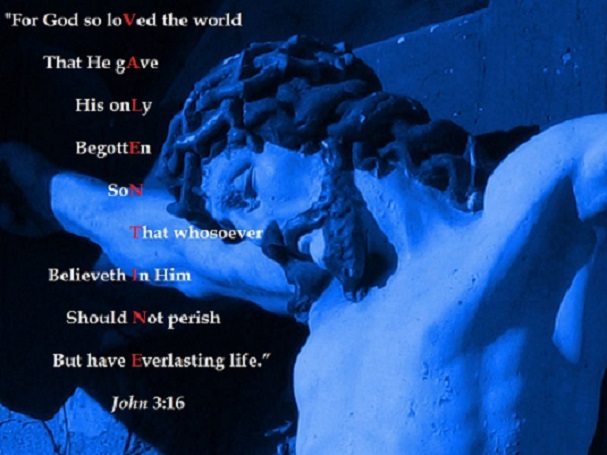John 15:9-10, 12-14, 16-17
Jesus said to his disciples:
“As the Father loves me,
so I also love you.
Remain in my love.
If you keep my commandments,
you will remain in my love….
This is my commandment:
love one another as I love you.
No one has greater love than this,
to lay down one’s life for one’s friends.
You are my friends if you do what I command you….
It was not you who chose me, but I who chose you
and appointed you to go and bear fruit that will remain,
so that whatever you ask the Father in my name he may give you.
This I command you: love one another.“

In our corrupt times, the word “love” is used to justify any or all deeds, even the most perverse. Pedophilia is called “man-boy love”; bestiality is called “zoophilia” — love of animals; incest is given a veneer of faux science by calling it “genetic sexual attraction”.
“Love” has become a synonym of “Do as you will”.
So what is love?
Here are some clues from Holy Scripture.
(1) Love is selfless and self-sacrificing
1 John 4:7-10
Beloved, let us love one another,
because love is of God;
everyone who loves is begotten by God and knows God.
Whoever is without love does not know God, for God is love.
In this way the love of God was revealed to us:
God sent his only Son into the world
so that we might have life through him.
In this is love:
not that we have loved God, but that he loved us
and sent his Son as expiation for our sins.
Few of us will be called to die for someone else, but many have and do sacrifice for others: parents for their children; adult children for their elderly parents; care-givers for the elderly and sick; all who give their money, time and labor for another or a good cause, with no benefit to themselves.
So this is one measure of love: How much will you sacrifice for another?
(2) Other attributes of love
From the famous passage from St. Paul’s letter to the Corinthians:
1 Corinthians 13:4-7
Love is patient, love is kind.
It is not jealous, is not pompous,
it is not inflated, it is not rude,
it does not seek its own interests,
it is not quick-tempered,
it does not brood over injury,
it does not rejoice over wrongdoing
but rejoices with the truth.
It bears all things, believes all things,
hopes all things, endures all things.
(3) The way to God is through the heart, not the mind
Reading St. Paul’s letter to the Corinthians, I was struck by the rest of the passage:
1 Corinthians 13:8-13
Love never fails.
If there are prophecies, they will be brought to nothing;
if tongues, they will cease;
if knowledge, it will be brought to nothing.
For we know partially and we prophesy partially,
but when the perfect comes, the partial will pass away.
When I was a child, I used to talk as a child,
think as a child, reason as a child;
when I became a man, I put aside childish things.
At present we see indistinctly, as in a mirror,
but then face to face.
At present I know partially;
then I shall know fully, as I am fully known.
So faith, hope, love remain, these three;
but the greatest of these is love.
I understand the above passage as St. Paul’s reminder to us that, in the end, the way to God cannot be accomplished through our mind alone — our efforts to know and understand God, the unimaginably awesome being who created the Universe. In St. Paul’s words, “for we know partially”. How can the created ever fully know the Creator?
The great St. Thomas Aquinas (1225-1274), the philosopher-theologian who wrote tomes of impeccable logic and reasoning, but lived only to the young age of 49, knew well the limits of human intelligence and how “partially” we know.
On December 6, 1273, St. Thomas had a mystical experience while he was celebrating Mass, after which he abandoned his scholarly routine and refused to write again. When his friend and fellow theologian, Reginald of Piperno, begged him to get back to work, St. Thomas replied:
“Reginald, I cannot, because all that I have written seems like straw to me (mihi videtur ut palea).“
Three months later, on March 7, 1274, St. Thomas passed, leaving the Summa Theologica uncompleted.
There’s a reason why the Greatest Commandment of all begins not with our minds, but with our hearts.
May the love and peace of our Lord Jesus Christ be with you,
~E


Thank you Dr.E for this most beautiful post. I loved it and I appreciate all of your profound scriptural references, and most especially, telling us what St. Thomas said. Absolutely and unequivocally wonderful! Much love to you, dearest Dr.E.!!!
Thank you, joandarc!